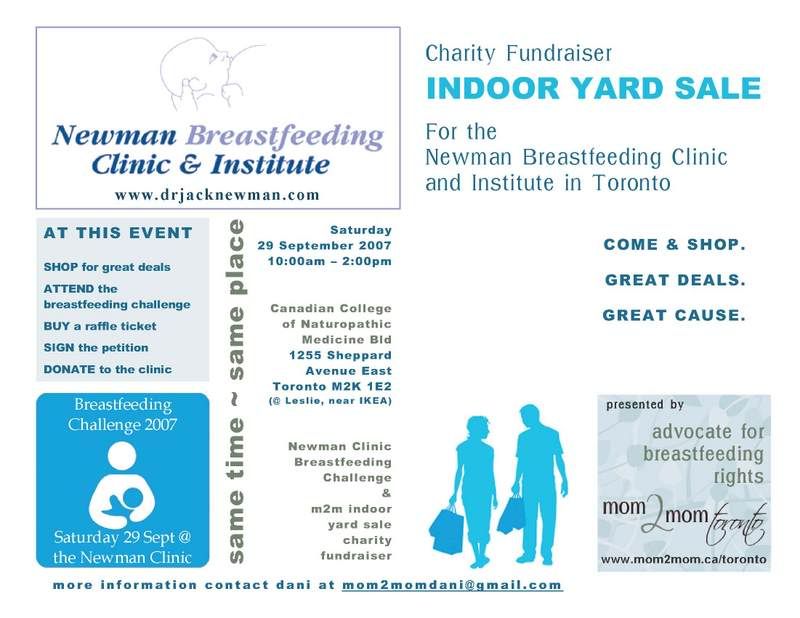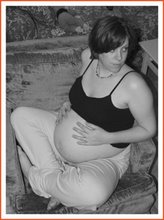i'll be there helping out and attending the breastfeeding challenge. stop by and show your support!
Thursday, August 30, 2007
Saturday, August 25, 2007
no more herbal essences shampoo for me
http://www.breastcancerfund.org/site/pp.asp?c=kwKXLdPaE&b=2483603
this is a great organization that i've just been introduced to. their mission?
"Breast Cancer Fund is the leading national organization focused on identifying the environmental causes of breast cancer and preventing the disease."
earlier this year they released information about carcinogens in kids bath  products and MY favorite shampoo. :(
products and MY favorite shampoo. :(
"A hidden cancer-causing petrochemical has been found in dozens of children’s bath products and adults’ personal care products, in some cases at levels that are more than twice the U.S. Food and Drug Administration’s lenient recommended maximum.
Laboratory tests released today revealed the presence of 1,4-Dioxane in products such as Hello Kitty Bubble Bath, Huggies Baby Wash, Johnson’s Baby Wash, Scooby-Doo Bubble Bath and Sesame Street Bubble Bath. The tests also found the carcinogen in Clairol Herbal Essences shampoo, Olay Complete Body Wash and many other personal care products."
i seem to ask myself this question a lot... "what IS safe for me and my family?"
Friday, August 24, 2007
US Childbirth deaths on the rise?
ATLANTA – U.S. women are dying from childbirth at the highest rate in decades, new government figures show. Though the risk of death is very small, experts believe increasing maternal obesity and a jump in Caesarean sections are partly to blame.
Some numbers crunchers note that a change in how such deaths are reported also may be a factor.
"Those of us who look at this a lot say it's probably a little bit of both," said Dr. Jeffrey King, an obstetrician who led a recent New York state review of maternal deaths.
The U.S. maternal mortality rate rose to 13 deaths per 100,000 live births in 2004, according to statistics released this week by the National Center for Health Statistics.
The rate was 12 per 100,000 live births in 2003 – the first time the maternal death rate rose above 10 since 1977.
To be sure, death from childbirth remains fairly rare in the United States. The death of infants is much more common – the nation's infant mortality rate was 679 per 100,000 live births in 2004.
Maternal deaths were a much more common tragedy long ago. Nearly one in every 100 live births resulted in a mother's death as recently as 90 years ago.
But the fact that maternal deaths are rising at all these days is shocking, said Tim Davis, a Virginia man whose wife Elizabeth died after childbirth in 2000.
"The hardest thing to understand is how in this day and age, in a modern hospital with doctors and nurses, that somebody can just die like that," he said.
Some health statisticians note the total number of maternal deaths – still fewer than 600 each year – is small. It's so small that 50 to 100 extra deaths could raise the rate, said Donna Hoyert, a health scientist with the National Center for Health Statistics. The rate is the number of deaths per 100,000 live births.
In 2003, there was a change in death certificate questions in the nation's most populous state, California, as well as Montana and Idaho. That may have resulted in more deaths being linked to childbirth – enough push up the 2003 rate, Hoyert said.
Some researchers point to the rising C-section rate, now 29 percent of all births – far higher than what public health experts say is appropriate. Like other surgeries, Caesareans come with risks related to anesthesia, infections and blood clots.
"There's an inherent risk to C-sections," said Dr. Elliott Main, who co-chairs a panel reviewing obstetrics care in California. "As you do thousands and thousands of them, there's going to be a price.''
Excessive bleeding is one of the leading causes of pregnancy-related death, and women with several previous C-sections are at especially high risk, according to a review of maternal deaths in New York. Blood vessel blockages and infections are among the other leading causes.
Experts also say obesity may be a factor. Heavier women are more prone to diabetes and other complications, and they may have excess tissue and larger babies that make a vaginal delivery more problematic. That can lead to more C-sections. "It becomes this sort of snowball effect," said King, who is now medical director of maternal-fetal medicine at Riverside Methodist Hospital in Columbus, Ohio.
The age of mothers could be a factor, too. More women are giving birth in their late 30s and 40s, when complications risks are greater.
Other characteristics of the maternal mortality rate include:
–Race: Studies have found that the maternal death rate in black women is at least three times greater than is it is for whites. Black women are more susceptible to complications like high blood pressure and are more likely to get inadequate prenatal care.
–Quality of care: Three different studies indicate at least 40 percent of maternal deaths could have been prevented.
Sometimes, there is no clear explanation for a woman's death.
Valerie Scythes, a 35-year-old elementary schoolteacher, died in March at a hospital in New Jersey – the state with the highest Caesarean section rate. She had had a C-section, as did another teacher at the same school who died after giving birth at the same hospital two weeks later.
However, Scythes died of a blocked blood vessel and the other woman died from bleeding, said John Baldante, a Philadelphia attorney investigating the death for Scythes' family.
"I'm not sure there was any connection between the two deaths," Baldante said.
Also mysterious was the death of Tim Davis' 37-year-old wife, Elizabeth, who died a day after a vaginal delivery at a Danville, Va., hospital in September 2000.
She had a heart attack after a massive blood loss, Davis said. It's not clearly known what caused the heavy bleeding. There was no autopsy, he said, a decision he now regrets.
Two previous births had gone well.
"Nothing led us to believe anything was wrong with this pregnancy. She was like a picture of health," he continued, noting she had been a YMCA fitness instructor.
A lawsuit against the hospital ended in a settlement. Davis also sued the obstetrician, but a jury ruled in the doctor's favor.
The child born that day, Ethan, starts second grade next week. ``He's a happy kid," Davis said. "He's just never had a mom.''
it's interesting that the figures may not even actually be on the rise but that's how it's reported anyways. because you know, childbirth is SO dangerous. or at least that's what you hear so often in the mainstream media.
the flip side is that it wouldn't surprise me if indeed our obesity levels and c-section rates have actually gotten so far out of control that we're going backwards.
Sunday, August 12, 2007
the rise of the great c-section
i'm literally shaking with anger right now after reading this article originally printed in the new yorker. i don't know what is wrong with atul gowande but he seems intent on terrifying women readers everywhere by creating the illusion that childbirth is a death defying feat requiring all of medicine's interventions to "correct" it. wait - scratch that - gowande is a SURGEON. so it makes sense that he believes that c-sections are better for women than vaginal births.
thank goodness for henci goer's fantastic and well thought out response to the original article. you can read that here.
"Gawande makes no case that these interventions improved outcomes. In fact, he notes that EFM has not been shown to benefit babies while increasing the likelihood of cesarean, and cesarean section carries the risks attendant on any major surgery plus the future reproductive risks of a scarred uterus. Despite this, Gawande has no quarrel with the increased use of cesarean surgery on the grounds that it is:
- easy to teach,
- is a “reliable” but not a better option,
- is “comfortable” for obstetricians,
- can be performed with “consistency,”
- is a “simpler, more predictable way to intervene,” and is believed by obstetricians to be less risky than “natural childbirth.” (This, of course, is not the same thing as actually being so.)"
of course c-sections have saved lives. but CERTAINLY they are not required for the nearly 30% of all births that they now account for. interestingly enough, dr gawande is the director of the World Health Organization's Global Challenge for Safer Surgical Care. it is the same world health organization that calls for a c-section rate of approximately 15%. that's half of what dr. gawande thinks is acceptable.
i'm in bad mood now.
Friday, August 10, 2007
reason #246 that ani difranco rocks...
okay this isn't really about ani difranco but it's a cool story. i got a message today on my mspace page (which i never log into) and i actually laughed out loud when i read the note.
it was from a very cool group called African Birth Collective who were inviting me to to apply to go on a trip to Senegal to help improve outcomes in a country with the highest infant mortality rate in the world.
Besides being the most amazing invitation i've ever received, what was funny was how they found me.
The woman who contacted me did a search on myspace for "ani difranco and doula" thinking that any doula who is a fan of ani is the type of woman they are looking for.
AMEN TO THAT!
anyways, i wish i could participate - it sounds like a life altering experience that would profoundly affect me and without a doubt, improve my skills as a doula.
anyone want to sponsor me? :) 
Sunday, August 5, 2007
the myth of baby cereal
did you know that the la leche league does not recommend feeding your baby rice cereal as their first food?
"Commercial, iron-fortified cereals are often the first foods served to
babies who are not breastfeeding because they need the extra iron, but breastfed babies are rarely anemic as the iron in human milk is well-utilized. If there is concern about the baby's iron levels, a simple test can be done in the doctor's office."
http://www.llli.org/FAQ/firstfoods.html
the best foods to start your baby on are avocado and/or banana. they have lots of nutrients, vitamins and fresh food is INFINITELY better than a processed, empty grain.
this website has loads of advice about stating solids and again, advocates for skipping commercial baby cereal.
http://www.wholesomebabyfood.com/cereal.htm


